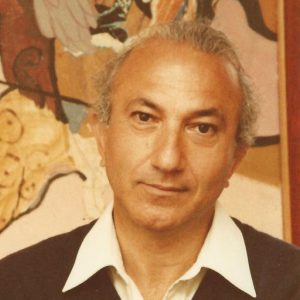This obituary, written by Luís Amorim de Sousa, appeared in Times Online on 27 September 2007.
Alberto de Lacerda
Internationally admired Portuguese poet who translated his own work and was described as ‘the poet who knows’
Alberto de Lacerda was one of Portugal’s most distinguished and internationally admired poets. He published a considerable body of verse in Portuguese and was closely involved in the translations of his work into English.
In the estimation of the American poet John Ashbery, de Lacerda was an extremely inspired writer who wrote “without any crutches”. He placed his lyrical talent at the service of the human condition and was able to write jewel-like poems about topics as simple as a glass of water and deliver heartrending elegies about the passing of time and concentration camps. The French poet René Char called him “the poet who knows”.
Carlos Alberto Portugal Correia de Lacerda was born in 1928 in the Governor’s Palace of the Island of Mozambique, then under Portuguese rule. The son of a colonial administrator, de Lacerda spent his childhood in a succession of outposts of that East African country. A sensitive and introverted child, he was deeply impressed by the contrasts of the wild surroundings where lions roared and the skies ignited in Gauguinesque tonalities. This and his father’s library were his earliest sources of wonderment and inspiration.
He went to school in the old capital, Lourenço Marques, now Maputo, where he excelled at languages but not in the “unfathomable mysteries of science and mathematics”. At 18 he was sent to Lisbon to pursue courses of study provided by the Alliance Française and the British Council.
By then he was already an accomplished poet. His earliest work was written when he was barely 14. His talent was as precocious as it was mature. A lover of all the arts, he was soon acquainted with the leading artists and writers of his generation and started his lifelong pursuit of creative excellence and outspoken opposition to mediocrity and oppression.
He was briefly jailed by Salazar’s political police and that experience marked him for life. “Freedom,” he claimed, “is my only obsession”.
He found work with the BBC and moved to London in 1951. Typically, he stepped ashore and went straight to the West End to attend a performance of The Winter’s Tale. An interview with Roy Campbell provided him with an introduction to literary London. He met and was adopted by such influential writers as Edith Sitwell and Arthur Waley.
It was Waley who gave him the opportunity to publish his first collection, 77 Poems, issued by Allen and Unwin in a bilingual edition. The poems were translated by Waley and the author and were received with acclaim. During a literary reception T. S. Eliot famously asked: “Is that the young Lacerda?”.
He went on to produce 12 further collections of poetry. His range is as vast as his production. He stands in a category of his own that pays homage to Portugal’s great classical tradition while sharing all the achievements of the modern experiment.
These qualities appealed not only to his Portuguese contemporaries but also to an impressive number of international figures as illustrious and as diverse as the great Brazilian modernists Manuel Bandeira, and Carlos Drummond de Andrade (who called him “the poet who teaches me”), and more familiar names such as Jorge Guillén, Octavio Paz, Marianne Moore, Louis Zukofsky, Robert Duncan, Christopher Middleton and John Ashbery.
His BBC announcer’s job ended after three years, and de Lacerda then worked as a freelance journalist, teacher, critic and translator before accepting an invitation to lecture at the University of Texas, at Austin, where he published another bilingual edition of his Selected Poems. Once again, he was his own translator, and one of his poems was Ecstasy:
The-afternoon-glides-white-boat
Sudden pavanne
The heart stops
The sun waits
Liquid shores
Time dances very slowly.
From Austin de Lacerda went on to teach at Boston University. He was a gifted teacher whose students often became writers. One of his favourites was the Pulitzer prize-winning novelist Jhumpa Lahiri.
After his retirement from Boston he lived in London where, in his later years, he was to be seen sitting in museum restaurants and cafés leafing through catalogues, reading newspapers and writing poems.
His love of the visual arts gained him an equally impressive number of artist friends including Vieira da Silva, Arpad Szenes and Paula Rego.
Lacerda was also a collage artist who showed his work in the Sociedade Nacional de Belas Artes, Lisbon, and an original collector of images and documents. He showed a selection of “his things”, as he insisted on calling them, at the Modern Art Centre of the Calouste Gulbenkian Foundation.
At times his extremely developed sense of personal dignity and artistic integrity stood in the way of his more rewarding choices. He often lived in solitude and discomfort but never sacrificed his values. He lived for them and for friendship. A fellow Portuguese poet called him “the most exacting, the most exciting, the most exasperating, the most extraordinary, the most exemplary of friends”.
Alberto de Lacerda, poet, was born on September 20, 1928. He died of a stroke on August 27, 2007, aged 78.
